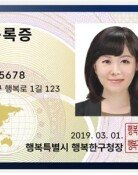Calls for speedy reform of income tax
Calls for speedy reform of income tax
Posted July. 08, 2022 07:52,
Updated July. 08, 2022 07:52
The monthly average real income for households of middle-income workers living in urban areas dropped in the first quarter of the year, according to Statistics Korea. The real income of the bottom 20~80 percent income bracket fell by 1.0~2.8 percent year on year. Although the figure of their income saw a slight increase, soaring inflation ended up bringing down their purchasing power, putting pressure on their livelihood. However, the real income of the top 20 percent and the well-subsidized bottom 20 percent of income earners increased, which implies that the middle class is bearing the burden of inflation the most.
The real income of the middle class is anticipated to fall even more sharply due to worsening inflation. The consumer price continues to show a steeper rise from 3.8 percent in the first quarter, 5.4 percent in the second quarter to 6~7 percent in the third quarter. An increased number of office workers bringing a lunch box from home amid “lunchflation” and households refraining from eating out due to “proteinflation,” a term referring to rising prices of beef, pork and chicken, will lead to weaker consumption.
Some voice that the standards of imposing income taxes, which were left untapped for 13 years, should be revised to overcome these challenges. The current tax system for workers earning 88 million won and under, 97 percent of all earned-income taxpayers, imposes a 6 percent of income tax on workers earning 12 million won and under, 15 percent on those earning 46 million won and under, and 24 percent on those with income of 88 million won and under, remaining unchanged since 2010. Laborers whose nominal wages increased for 13 years automatically were dragged into higher tax brackets, paying more income taxes, which is called “inflation tax.” In a period of high inflation like this year, an ironic situation occurs where tax increases while real income falls. This makes other advanced countries, such as the U.S., the U.K. and France, annually adjust income tax rate brackets considering rising prices.
The Yoon Suk-yeol administration pledged to lower the taxes, including corporate tax and comprehensive real estate holding tax, that were raised by the former Moon Jae-in administration, but it has not revealed any plans to revise income taxes that affect the middle-class livelihoods the most. Some in the National Assembly came up with a measure to support middle-class workers by raising the non-taxable meal allowances included in monthly wages from 100,000 won to 200,000 won, which is a mere help to pay for lunch. If worried about the inflation shock disproportionately hitting the middle class and poor consumption, the government and politicians must first consider tax reform to ease the burden of income tax in earnest.







